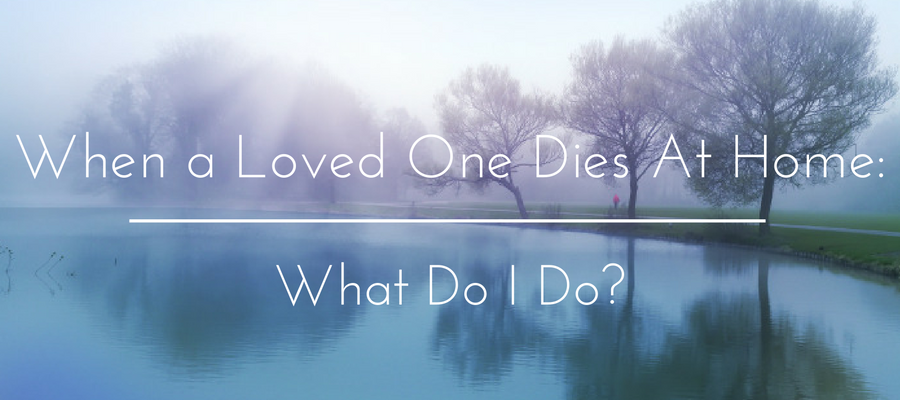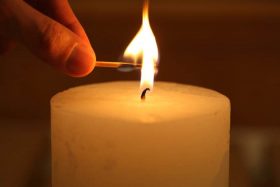
Most people do not know what to do if a loved one has died at home.
This straight-forward checklist will tell you what to do if this happens. It covers what to do if the death was unexpected (for example, the person had a fatal heart attack). It also covers what to do when the death was expected (for example, the person was terminally ill with cancer).
We’ve also created a helpful infographic summarizing 12 practical things you need to do when someone dies to help guide you through including the first calls to make, arrangements and decisions that need to be made and documents you may need to file and obtain.
When the Death is Unexpected
When a sudden and unexpected death has occurred at home, call 911 immediately (i.e. emergency services).
If you live in a rural area, and there are no emergency services, contact the local coroner’s office. Search for contact details in telephone directories or on the website of the relevant local authority.
If your loved one was under the care of a physician, contact his or her doctor. Search for contact details in telephone directories or on the Internet.
You need to arrange care for any dependents or pets of the deceased.
You should also notify family and close friends. You can also ask someone to take care of this task for you.
If the deceased was working prior to their death, you should notify his or her employer. You should also request information about any company benefits that the deceased may be entitled to, including life-insurance, and if there is any outstanding pay due.
When the Death is Expected
The death of a person with a terminal illness is not an emergency. Do not panic and do not call 911.
When you are ready, call the palliative care physician in charge of the deceased person’s medical care or the doctor or nurse who has been designated to come and pronounce death.
Remember that you do not have to contact anyone immediately. You may wish to first spend some time with your loved after he or she has died.
There may also be certain cultural or religious customs or rituals that are important to you, your family and the deceased, that need to be performed. These might include rituals for preparing the body, honouring the death, and coping with grief. You may need to contact an appropriate spiritual or cultural leader to help you perform the necessary rituals and customs.

Related Articles

You may keep your loved one at home for either a few hours, or even overnight, as there are no legal reasons to have him or her removed immediately. You may also prefer that your loved one be moved to a funeral home as soon as possible. When you call the attending doctor or nurse, you should let them know your wishes.
If you do decide to keep your loved one at home for a period of time, close their eyelids. You should also move the person onto their back because it may be difficult to change his or her position at a later time because of physical changes that occur in the body after death has occurred.
After the doctor has arrived and pronounced death, and has filled out the necessary form and verified that an autopsy is not needed, you can call the funeral home.
Your loved one may have preselected a funeral home and may even have prepaid for services. If this is the case, you should call the funeral home that your loved one chose.
If a funeral home was not selected before the person’s death, you should research which funeral home in your area would best serve you and your family’s needs. There are many resources on this website to help guide you in reaching a decision.
Once you have selected a funeral home, and are ready for your loved one to be moved there, contact them. Funeral directors are usually on call 24-hours a day.
You may want to take some time to think about whether or not you want to be present when the funeral directors remove your loved one from their home. You can stay with your loved one when this occurs, or you can go to another room if you wish. There isn’t a correct choice, so you should do what feels comfortable for you.
You need to arrange care for any dependents or pets of the deceased.
You should also notify family and close friends. You can also ask someone to take care of this task for you.
If the deceased was working prior to their death, you should notify his or her employer. You should also request information about any company benefits that the deceased may be entitled to, including life-insurance, and if there is any outstanding pay due.
(Click infographic to enlarge)
Like our infographic? Share it on your site by copying this code:
Additional Resources
Did you know that Love Lives On has a comprehensive library of articles on grieving and healing, as well as on celebrating your loved one’s life in unique ways?
Here are some other popular posts on our website:
- How to write the perfect funeral thank you card (with sample wording you can easily use!)
- 100+ celebration of life ideas
- How to survive the 5 stages of grief – practical advice!
- Dealing With grief: a mother’s personal journey
- Healing from grief after a suicide
- Helping children cope with grief
It Helps to Share…
If you found this post on what to do when a loved one dies helpful, check out our Pinterest Page for more funeral planning resources and celebration of life ideas that might be helpful.
You can also subscribe to our YouTube channel for more practical resources, expert interviews & inspiring ideas for celebrating our loved ones lives, now and forever.
Use the comment box below to let us know if you have a suggestion we should add to this post. At Love Lives On, we’re always listening.




